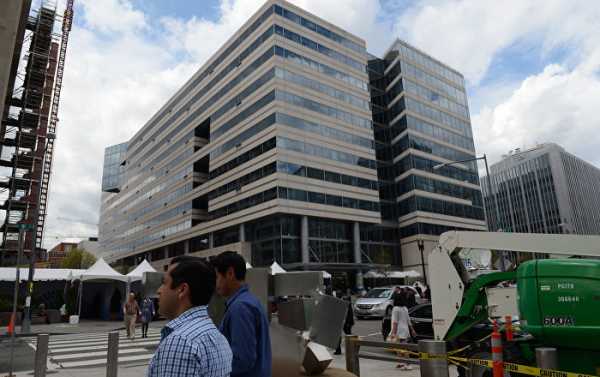
The Argentine government is struggling to maintain economic and financial stability amidst the elevated political risks brought about by a currency crisis just one year before a presidential election.
Kristian Rouz — The Argentine government is taking decisive measures to normalize the nation’s finances, as its economy remains fragile amidst the ongoing turmoil across emerging markets (EMs).
The country cut its main budget deficit last month to comply with the conditions of an International Monetary Fund (IMF) assistance loan, but the president has warned poverty might become a more acute problem.
According to a report from the Argentine Treasury Ministry, in July the nation’s primary fiscal deficit declined 35.4 percent year-on-year to 14.28 billion pesos ($520.8 million). This comes as the government has wrapped up some of its costly social programs, and taken steps to boost the efficiency of governmental spending.
These measures come in the wake of Argentina being rattled by a currency crisis earlier in the year. Experts say the South American nation could dip into a recession this year or next, which could hamper the odds of re-election of incumbent President Mauricio Macri.
“We see a very significant risk that the economy will experience a recession in 2018… and that real GDP growth in 2018 will dip into negative territory,” Alberto Ramos of Goldman Sachs said.
The latest GDP figures suggested the Argentine economy had contracted sharply in May, declining 5.8 percent month-on-month due to a squeeze in corporate sector financing. This was caused by Argentina’s high exposure to dollar-denominated borrowing, structural inefficiency of the economy and rising borrowing costs in the US.
May’s GDP reading was also the most significant drop since the global financial crisis of 2008, and it was also exacerbated by a severe drought that has crippled farming sector output. Agricultural activity plunged 35 percent, and many farmers are facing a double risk of zero-to-negative revenues, and a narrowed opportunity to obtain refinancing of their existing loans to continue operating.
Some say many Argentine farmers could go bankrupt.
Additionally, industrial production declined 1.4 percent, whilst transportation and telecom sectors dropped 4.9 percent.
Meanwhile, the IMF expects its emergency loan to help Argentina post a 0.4-percent GDP growth for this year.
“Implementation of this plan should remove an important source of vulnerability as well as help contribute to a more effective monetary policy framework,” Gerry Rice, chief spokesman for the IMF said.
This comes as the government in Buenos Aires had expected a 3-percent expansion this year after 2.9-percent growth in 2017 — but now some experts say the economy could contract by as much as 1.3 percent, according to a poll by Reuters.
The Argentine Treasury also said the nation’s overall financial deficit — including interest payments on existing national debt — increased 90.6 percent year-on-year, to 62.38 billion pesos ($2.09 billion). This adds to the concerns that the IMF’s assistance program could make things worse for Argentina in the long-term, also contributing to the popularity of former center-left president and possible candidate Cristina Kirchner.
The political shockwaves from the current economic turmoil are particularly relevant in light of the recent comments from President Macri, who said poverty might increase in the coming years as inflation spiked to 31.2 percent in July despite the government’s efforts to stabilize the situation.
“This devaluation brought a rebound in inflation, and inflation is the largest driver of poverty, and regrettably, we are going to lose some of the gains we have made in poverty reduction,” Macri said.
Kirchner, meanwhile, is often credited with steering Argentina out of the financial abyss brought about by a 2001 crisis, and subsequent IMF bailout. The Fund’s current program, some say, has made things worse for the country, and the Kirchner camp is now ramping up the rhetoric she could save the country again.
Macri is seen as a business-friendly president, who was recently hailed by US President Donald Trump — despite Argentina’s latest financial crisis still being in full swing.
Sourse: sputniknews.com






